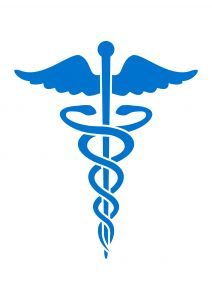 Hospitals expect to be paid for services rendered. Payment sources range from personal funds, government assistance, to insurance. When the accident is job related, workers’ compensation will pay the hospital in compensable cases. When the accident is not job related, third parties responsible for causing the accident may have to pay compensation for hospital expenses.
Hospitals expect to be paid for services rendered. Payment sources range from personal funds, government assistance, to insurance. When the accident is job related, workers’ compensation will pay the hospital in compensable cases. When the accident is not job related, third parties responsible for causing the accident may have to pay compensation for hospital expenses.
Hospital liens are created by legislation. The purpose of these provisions is to “assure a hospital of its rights to proceeds which are held by an insurance company whose insured is liable for the injuries suffered by the hospital’s patient.” Palm Springs Gen. Hosp., Inc. v. State Farm Mut. Auto. Ins. Co., 218 So. 2d 793, 797-98 (Fla. 3d DCA 1969). The carrier is never obligated to pay more than its policy limits, see, Shands Teaching Hosp. v. Mercury Ins. Co., 97 So.3d 204 (Fla., 2012), and whether or not any insurance proceeds are paid, the patient remains responsible for all outstanding charges and can be sued by the hospital for breach of contract with regard to same. In some instances, the patient’s personal injury lawyer can negotiate a reduction in the bill.
Florida hospital liens have been created by Special Acts of the Florida Legislature and by ordinances. Liens created by the Florida Legislature are unconstitutional and unenforceable.
Recently, in Lee Memorial Health System v. Progressive Select Ins. Co. (Fla. Supreme Court; Dec. 20, 2018), the Florida Supreme Court declared unconstitutional a lien law created by the Florida Legislature. The case did not involve an Ordinance lien and the court did not bring that type of lien into the conversation. By remaining silent on Ordinance liens, the court created a flicker of hope among some personal injury lawyers that the court had declared all hospital liens unconstitutional. The hope was quickly dashed with a dose of legal research reality.
The constitutionality of hospital liens was first addressed by the Florida Supreme Court in Shands Teaching Hosp. v. Mercury Ins. Co., 97 So.3d 204 (Fla., 2012). A person struck by a vehicle operated by a Mercury Insurance insured received medical care in Shands Teaching Hospital. The bill totaled $38,418.20. The Mercury policy had bodily injury coverage limits of $10,000.00. Mercury tendered this amount to the injured party without accounting for the unpaid Shands’ bill. Shands sued Mercury for impairment of lien, claiming it had both a Special Act lien and an Ordinance lien which was ignored by Mercury. The First District Court of Appeal in Mercury Insurance Co. of Florida v. Shands Teaching Hospital & Clinics, Inc., 21 So.3d 38 (Fla. 1st DCA 2009), declared both liens unconstitutional. On further appeal, the Florida Supreme Court split the baby, declaring the Special Act lien unconstitutional while upholding the constitutionality of the Ordinance lien. The court limited Mercury’s exposure to the coverage limits under the policy (which included $10,000.00 in PIP because, apparently, the injured person was a pedestrian when struck by the Mercury insured).
Less than half of Florida’s 67 counties have Ordinance-based hospital lien laws. Miami-Dade and Broward are among the counties that have one. The ordinances contain instructions for perfecting the liens. Some people mistakenly believe that failing to perfect the lien renders it unenforceable. This was the issue in Public Health Trust of Dade Cty. v. Carroll, 509 So. 2d 1232 (Fla. 4th DCA 1987), with the court declaring, “a tardy filing does not invalidate the hospital lien, but only results in the lienor or creditor being an unsecured creditor, at least until such time as the lien is filed.” at 1234.
There are pros and cons to hospital liens, with objections from personal injury attorneys and concerns about negative financial impacts on patients. In cases where the bills exceed the available insurance coverage, the liens can sometimes stand in the way of pursuing a claim.
Contact us at 305-758-4900 or by email (jgale@jeffgalelaw.com) to learn your legal rights.
Jeffrey P. Gale, P.A. is a South Florida based law firm committed to the judicial system and to representing and obtaining justice for individuals – the poor, the injured, the forgotten, the voiceless, the defenseless and the damned, and to protecting the rights of such people from corporate and government oppression. We do not represent government, corporations or large business interests.
While prompt resolution of your legal matter is our goal, our approach is fundamentally different. Our clients are “people” and not “cases” or “files.” We take the time to build a relationship with our clients, realizing that only through meaningful interaction can we best serve their needs. In this manner, we have been able to best help those requiring legal representation.
 Florida Injury Attorney Blawg
Florida Injury Attorney Blawg

